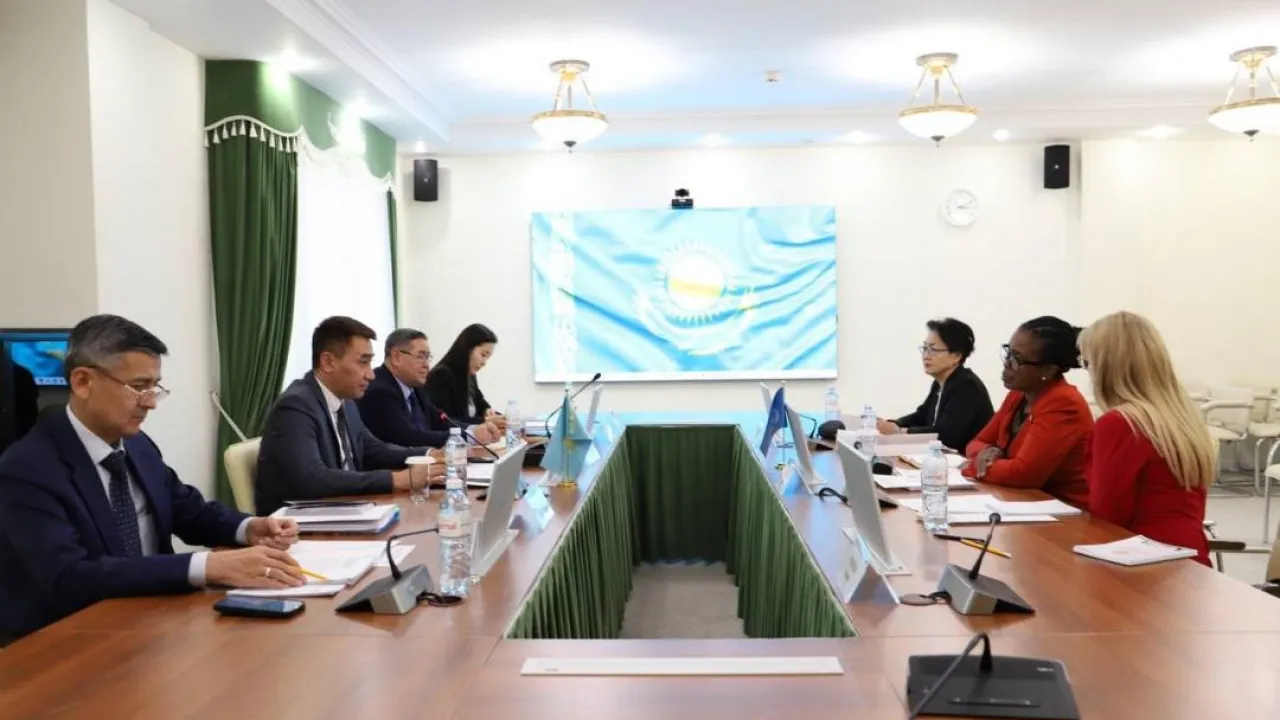
Vice Minister of Labour and Social Protection of the Population of the Republic of Kazakhstan Olzhas Anafin met with the Representative of the United Nations Population Fund (UNFPA) in Kazakhstan, Chinwe Ogbonna. During the meeting, the parties discussed cooperation on demographic and migration issues, reports DKNews.kz.
Opening the meeting, Olzhas Anafin expressed gratitude to the United Nations for its long-standing and productive partnership. He highlighted the joint work with UNFPA, particularly in the development and implementation of service delivery standards in Active Ageing Centres, the National Action Plan on Active Ageing, and the Action Plan to Improve the Situation of Older Citizens “Active Ageing,” among others.
“Over the past five years, Kazakhstan has seen new demographic trends, including record-high birth rates. The average age of the population is 32.5 years, while the average life expectancy exceeds 75 years,” Anafin noted.
He also informed the participants about the implementation of the Action Plan to Improve the Situation of Older Citizens “Active Ageing,” which is designed to run until 2029.
The Plan provides for the establishment of Active Ageing Centres across all regions, focusing on promoting health and social engagement among older people. To date, 127 such centres have been opened, providing around 650,000 various services and hosting more than 2,900 events.
The Vice Minister also spoke about the implementation of the Concept of Family and Gender Policy in Kazakhstan, which includes measures aimed at ensuring gender equality, and shared information about ongoing initiatives in the area of migration policy.
Through the development of international cooperation, Kazakhstan is enhancing the effectiveness of migration management and the protection of migrants’ rights.
The country is implementing the Concept of Migration Policy until 2027, which focuses on attracting qualified specialists, protecting the rights of Kazakh citizens working abroad, and addressing demographic imbalances between regions.
“As part of the implementation of the Concept, Kazakhstan continues to improve migration legislation, simplify the visa regime, and streamline procedures for invitation, entry, and registration of foreign nationals. The visa and migration portal has been modernized, and the residential registration process has been significantly simplified and automated through the e-Government portal,” Anafin stated.
He also shared information about the digital solutions introduced to automate public services provided by the Ministry, as well as about the progress in implementing the new social policy aimed at improving inclusivity and accessibility.
In turn, Chinwe Ogbonna highly commended the Ministry’s ongoing efforts and emphasized the effectiveness of inter-agency cooperation. She also informed about the development of the new Country Programme between UNFPA and the Government of Kazakhstan for 2026–2030.
During the meeting, the parties discussed opportunities for further cooperation on active ageing, migration, and demographic issues.